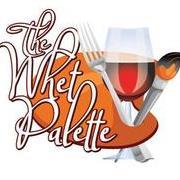-
Welcome to the eG Forums, a service of the eGullet Society for Culinary Arts & Letters. The Society is a 501(c)3 not-for-profit organization dedicated to the advancement of the culinary arts. These advertising-free forums are provided free of charge through donations from Society members. Anyone may read the forums, but to post you must create a free account.
Small Town Dining -- Spare Me
-
Similar Content
-
- 17 replies
- 1,222 views
-
- 72 replies
- 4,939 views
-
- 1 reply
- 884 views
-
- 196 replies
- 50,847 views
-
- 14 replies
- 1,214 views
-
-
Recently Browsing 0 members
- No registered users viewing this page.







Recommended Posts